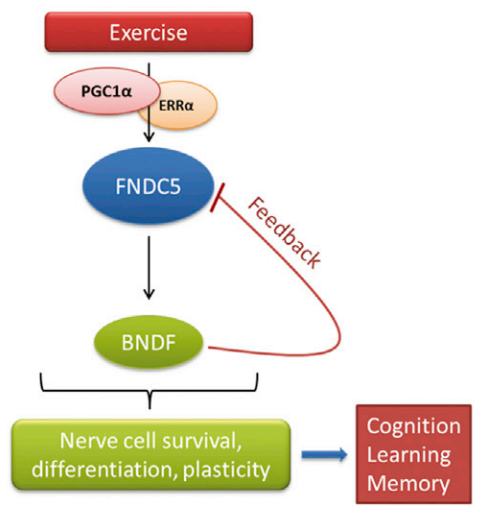How exercise boosts brain health
October 14, 2013
[+]

Exercise stimulates increased BDNF gene expression. BDNF is the master regulator of nerve-cell survival, differentiation, and plasticity in the brain. This will lead to improved cognitive function, learning, and memory. (Credit: Christiane D. Wrann et al., Cell Metabolism)
Research has shown that exercise is good for the brain. Now investigators have identified a molecule called irisin that is produced in the brain during endurance exercise and has neuroprotective effects.
Researchers were able to artificially increase the levels of irisin in the blood to activate genes involved in learning and memory. The findings may be useful for designing drugs that use this exercise-induced molecule to guard against neurodegenerative diseases and improve cognition in the aging population.
While it’s known that exercise can boost cognitive function and lessen symptoms of neurological diseases like depression, stroke, and Alzheimer’s disease, the mechanisms underlying these effects have been unclear. One important player is thought to be a growth factor named brain-derived neurotrophic factor (BDNF).
Through experiments conducted in mice, investigators led by Dr. Bruce Spiegelman of the Dana-Farber Cancer Institute and Harvard Medical School found that a molecule called FNDC5 and its cleavage product, irisin, are elevated by endurance exercise in the brain and increase BDNF expression. On the other hand, mice genetically altered to have low irisin levels in the brain had reduced levels of BDNF.
No comments:
Post a Comment